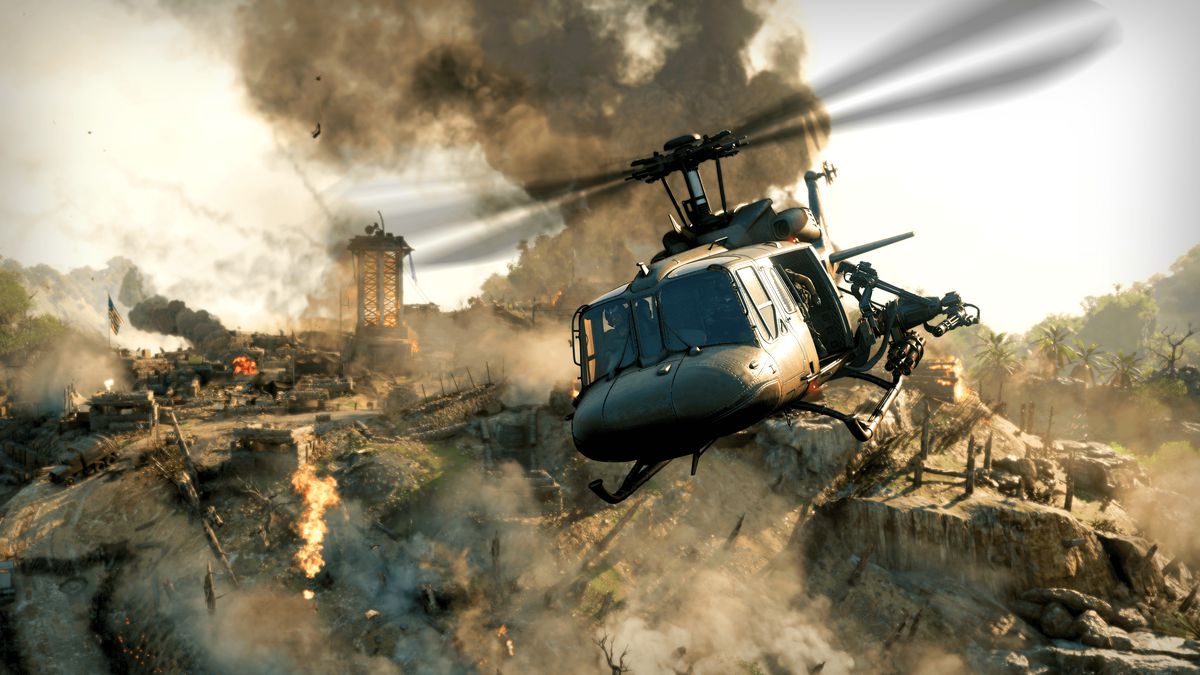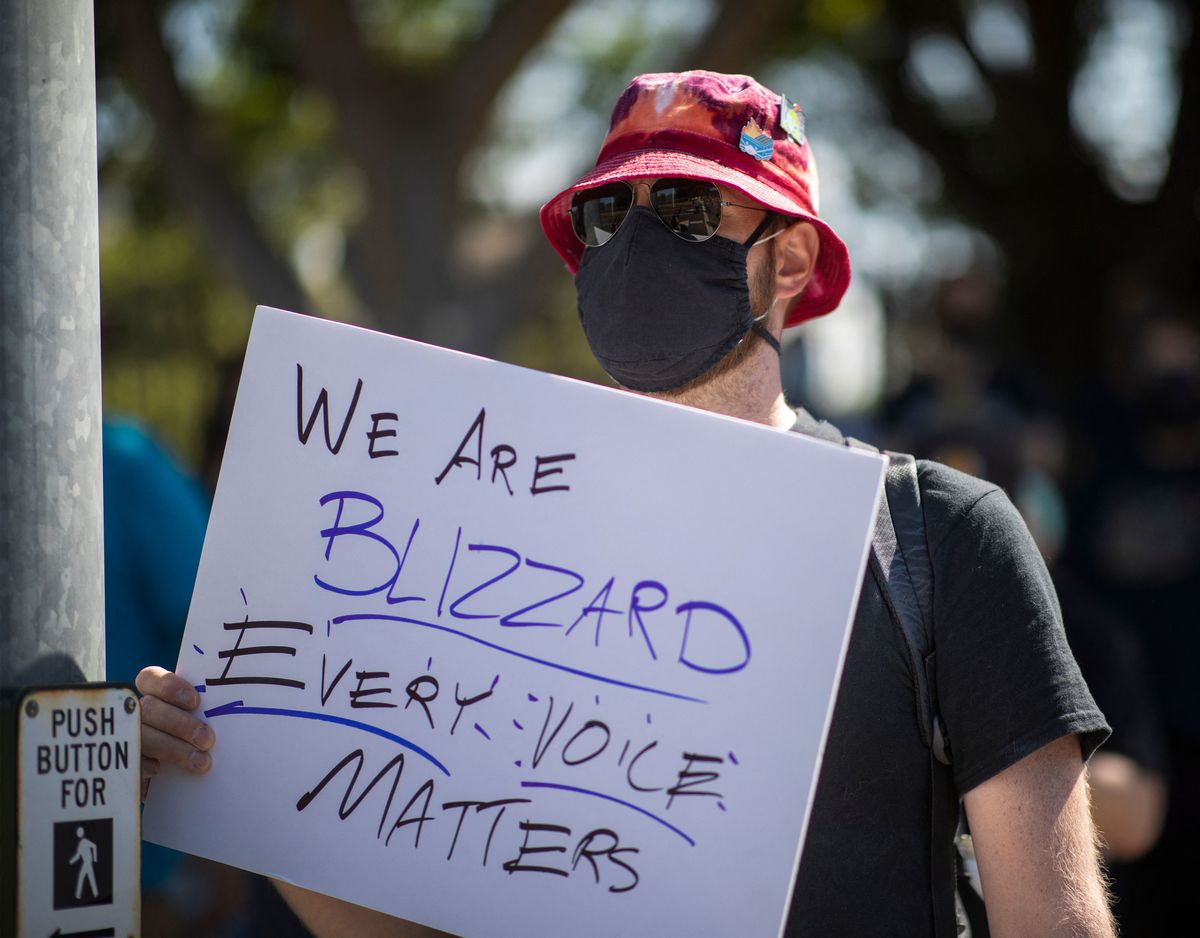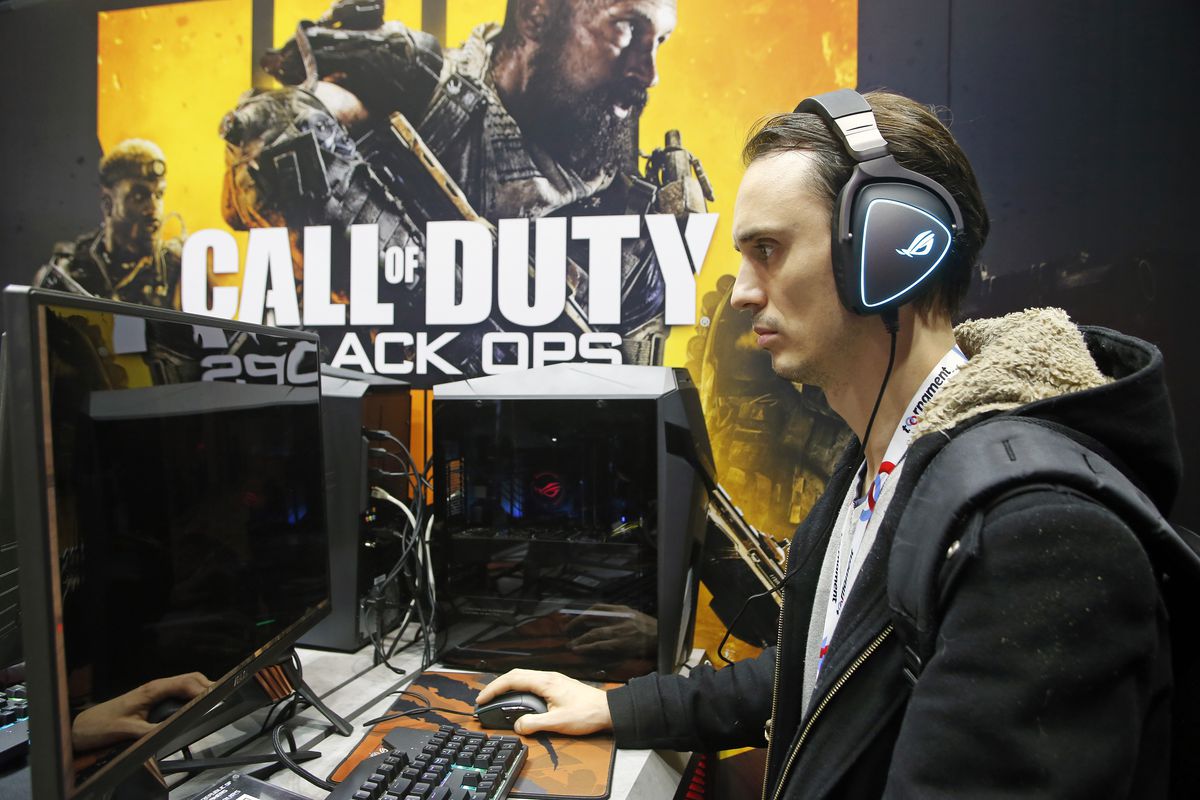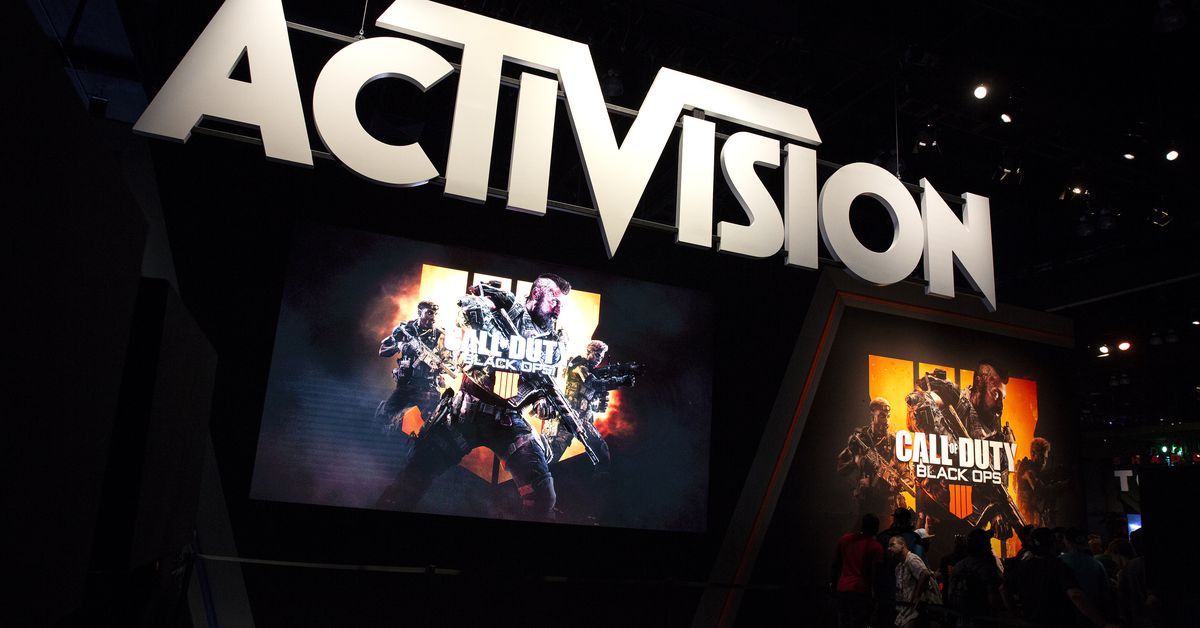“Use, dispose, repeat.”
Activision Blizzard has a problem keeping its quality assurance (QA) testers and customer service representatives around. That’s partly by design; workers are contracted on a temporary basis. But the work that QA and customer service workers at Activision Blizzard do, in offices in California, Texas, and Minnesota, is very demanding, employees said, especially considering the low pay, intense crunch, and mistreatment by customers.
Current and former employees who spoke to Polygon described feeling defeated by their time at Activision Blizzard, due to a combination of the brutal crunch and devaluation of their positions.
“I cried when I got the job,” one current employee told Polygon. “I was so excited to be a part of the process, and to be in this industry. It’s always been my dream to work in video games. And now I feel crushed.”
“The company took a lot from me,” another former QA employee, Sami King, told Polygon.
A large portion of Activision Blizzard’s QA department, working on game franchises like Call of Duty, are contract workers employed in offices far away from the publisher’s California headquarters, in places like Austin, Texas and Eden Prairie, Minnesota. Hundreds of contract workers work under a few full-time, salaried employees that lead the QA process of identifying and reporting game bugs. (The Blizzard employees Polygon spoke to said they were employed by the company itself as salaried workers, while the Activision side houses most of the company’s contract workers.)
Fifteen current and former employees in both QA and customer service told Polygon that the structure of Activision Blizzard’s QA and customer service programs, specifically in its Texas and Minnesota offices, makes workers feel undervalued and exploited. (A dozen additional Activision Blizzard employees corroborated these reports in statements sent to the press, including Polygon, through the ABK Workers’ Alliance.) These employees described a constant rotation of QA workers, with people working under contracts studded between three-month long unpaid breaks between new contracts. Contracts work in cycles; workers said company policy specifies a certain amount of time on a contract before a worker has to be off-contract again, also for a designated amount of time. Then the cycle repeats. This creates a system where it’s challenging to actually advance in a career at QA; workers can’t afford to not have a job for three months, and many often just find something new and never return to Activision Blizzard.
Workers pointed to the company culture outlined in the California Department of Fair Employment and Housing lawsuit filed last month as the root of a company-wide problem. In the lawsuit, employees alleged widespread sexism and workplace misconduct perpetuated by leadership that trickled down to all levels of the company. Activision Blizzard workers told Polygon that leadership in Texas and Minnesota have been positioning the lawsuit and its alleged toxic culture as a problem specific only to Blizzard Entertainment, which is cited frequently in the court documents. But workers from other studios told Polygon that’s not true: The problems are in all facets of the company, and contracted workers in both QA and customer service say they feel vulnerable due to the lack of job stability.
All 15 current and former employees Polygon spoke to, as well as the majority of workers that emailed statements through a representative, said that pay is exceptionally low, with rates as low as $12 an hour. During crunch periods, some people said they worked up to seven days a week for at least 10 hours a day. Some workers said they struggled with their mental and physical health during these times, yet felt compelled to work anyway, simply because they otherwise were not paid enough to survive.
Activision Blizzard has not responded to Polygon’s request for comment. Current workers said that leadership has not yet addressed the demands laid out in July.

Image: Raven Software/Activision
In the lead-up to the release of 2024’s Call of Duty: Black Ops Cold War, workers said they’d get one day off every three weeks to a month. “That was their gift to you during crunch,” one current employee said. “I know some people who had […] worked 28 days in a row. Twelve-hour shifts. That was probably the most chaotic time.”
“[The pay] is never enough,” another current employee said. “I just really want to be able to afford to live.”
Jessica Gonzalez, a current Blizzard Entertainment employee who’s worked in QA at Activision and Treyarch, told Polygon that the company should be held liable for allegedly creating these working conditions that allow abusers to operate in these systems. She said that the structure creates a “rat race” culture due to the uncertainty of it all.
“Job security is so uncertain that people feel the need to use these avenues to be seen and get in the gaming industry,” Gonzalez said. “The power imbalance created by these actions actively enables harm and psychological abuse towards QA. We believe in the product we work on, we love the games, we love the community. We love what we do. And I feel like that’s used to pay us low wages, to play with our livelihoods by dangling this full-time carrot over our heads for us to do whatever we can — do all the overtime we can — to be seen as the person that’s willing to do anything for the company. And then you get your contract extended.”
Without a clear route for advancement, Activision Blizzard reinforces a misconception, workers said, that QA is unskilled work — “something a monkey could do,” a source told Polygon. In reality, contract workers doing QA for Activision Blizzard are doing crucial, tedious work, yet these workers told Polygon that higher-ups often emphasized to them that “real” developers are more important and that QA workers are easily replaceable. New people are brought in each week, with mass hiring periods alongside busy periods, bringing loads of new testers on during crunch periods that have people working for up to seven days a week.

Photo: David McNew/AFP via Getty Images
“The conditions for [Call of Duty: Black Ops] Cold War were awful, yet that’s their best-selling Call of Duty game today, which reinforces that, ‘Yeah, these methods work. Why would we spend money [for better practices]?’” one current employee told Polygon.
Multiple employees told Polygon about situations in which they alleged a power imbalance between full-time employees and contract workers, which created a toxic environment. Some reported instances of sexual harassment that were allegedly brushed off by HR. The workers described a culture in which QA and customer service departments were siloed off from other parts of the company; most QA workers Polygon spoke to said they were barred from talking directly to developers.
Current and former Activision Blizzard employees have rallied in solidarity over the past few weeks, staging a walkout and demanding leadership take action and responsibility for the culture problem that allegedly disproportionately affects marginalized workers. But contracted workers, while still heavily involved in worker movements, say they feel hesitant to report misconduct or participate in leadership’s proposed “listening sessions,” because the contract structure puts them in such a precarious position in which workers feel they could be fired at any time. Three sources confirmed that, in some cases, contracted QA workers were not even invited to those proposed listening sessions — specifically, workers in the Texas office who were contracted by a third-party agency. Despite working solely on Activision Blizzard products, these workers find themselves even further removed from inclusion at the company.
Workers said these working conditions extend to customer service employees across the company as well. Like QA, customer service is seen as a “low-skilled” job within the development pipeline. The pay is low, and the work is underappreciated and often challenging. One current customer service employee said that managers often make the department feel like a burden — “a cost, not a department that generates revenue.”
Multiple customer service employees described dealing with verbal abuse at the hands of angry players, like threats and slurs. One former customer service employee recalled an instance during World of Warcraft: Battle for Azeroth’s launch, in which there was extended downtime, when a player told customer service they wished the Blizzard office would have burned down in the 2018 California wildfires. Another former customer service employee described instances where angry players would threaten to show up at the company offices. Some workers said it was especially taxing given how they felt perceived by the rest of the company, alongside the low pay.
Multiple workers said that customer service often feels the brunt of anger during controversies, including following the DFEH lawsuit. “While these comments may not be personally directed at me, they take a psychological toll, and we’re told to just remember [that] ‘it’s not us they’re mad at,’” one Blizzard employee said. “It’s kind of hard to help someone who’s telling me to kill myself on a daily basis, all because of a video game.”

Photo: Chesnot/Getty Images
QA testers described having to encounter similar verbal abuse from players during live testing with the public. “It was definitely an issue that I watched take a toll on multiple people,” one current QA worker said. “It was a good time working seven days a week getting to listen to gamers say slurs all day.”
The system of siloing contracted workers away from other parts of the company has enabled bad behavior from the top down, workers said. People felt as if leadership devalued and dehumanized workers in these departments, reducing people to just “bodies on a project.”
“That’s where the formula for abuse comes in,” Gonzalez said. “That’s where I feel Activision Blizzard should be held accountable. There’s definitely a root to the rot. And it’s something that needs to be addressed and fixed.”
Polygon – All
Source link
Related Post:
- Activision Blizzard lawsuit expands for QA and customer service contractors
- Activision Blizzard employees press ahead with walkout, say Kotick statement “fails to address critical elements” • Eurogamer.net
- Ubisoft Employees Say CEO Yves Guillemot “Sidelined” Demands In Activision Blizzard Open Letter
- Activision Blizzard employees denounce corporate statements: ‘We are here, angry, and not so easily silenced’
- Activision Blizzard employees call leadership response to harassment suit ‘abhorrent and insulting’
- Activision Blizzard employees staging walkout in support of lawsuit and to protest current leadership
- Almost 1,000 Activision Blizzard Employees Sign Open Letter To Leadership, “We Will Not Be Silenced”
- Activision Blizzard Employees Stage A Walkout Following “Abhorrent” Response To Harassment Lawsuit
- Activision Blizzard employees reveals plans to walkout
- More than 1,500 Activision Blizzard employees condemn company leadership, call for ‘compassion for victims’
